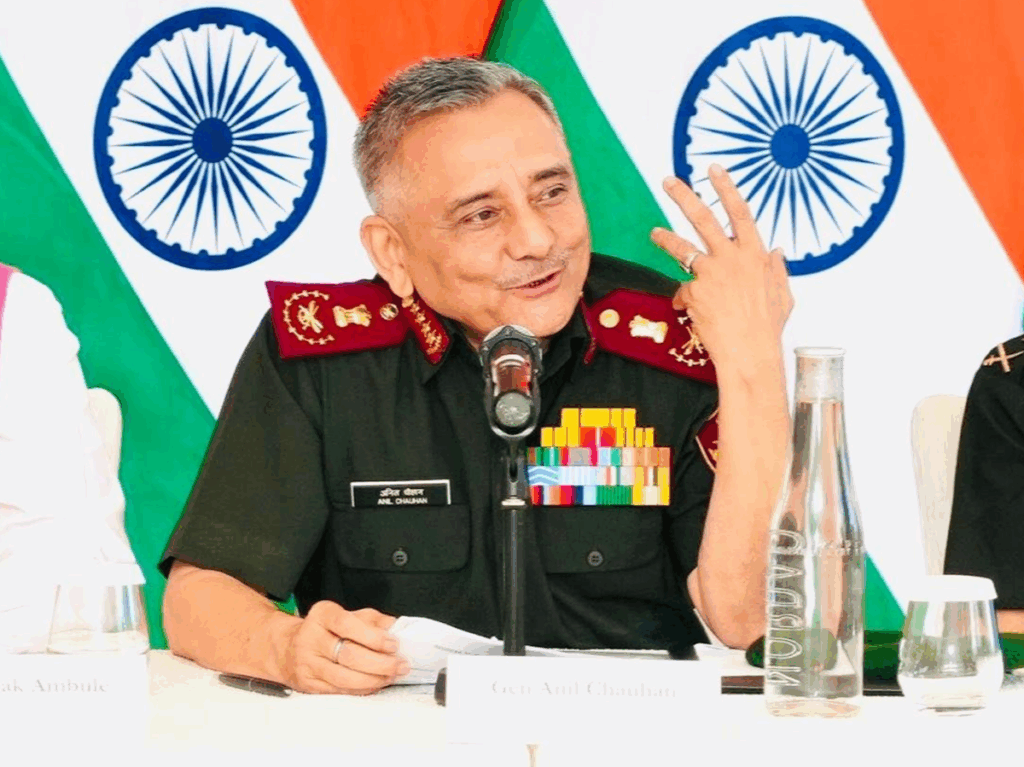Chief of Defence Staff General Anil Chauhan underscores the resilience of India’s military, emphasizing that setbacks during Operation Sindoor were overshadowed by strategic successes against Pakistan-sponsored terrorism.
New Delhi: Chief of Defence Staff (CDS) General Anil Chauhan on Tuesday asserted that professional military forces remain undeterred by setbacks, days after confirming India lost fighter jets during Operation Sindoor, a retaliatory campaign against Pakistan following the brutal Pahalgam terror attack on April 22, 2025. Speaking at Savitribai Phule Pune University, he stressed that outcomes, not losses, define success in warfare.
Resilience Over Setbacks
General Chauhan highlighted the adaptability of India’s armed forces, stating, “Professional forces are not affected by setbacks or losses; in a war, what is important is that the morale needs to remain high even if there are setbacks.” He revealed that India suffered losses of an unspecified number of fighter jets on May 7 during the initial phase of Operation Sindoor, launched to target terror hubs in Pakistan and Pakistan-occupied Kashmir (PoK). However, he emphasized that the military swiftly rectified tactical errors, enabling precise strikes on Pakistani airbases by May 10, penetrating defenses “with impunity” and using advanced munitions like BrahMos missiles.
Operation Sindoor’s Strategic Triumph
Operation Sindoor was India’s response to the Pahalgam attack, where 26 civilians were killed with headshots in front of their families, an act Chauhan described as “profound cruelty” that revived memories of India’s long history as a victim of terrorism, with nearly 20,000 lives lost over decades. The operation destroyed nine terror camps and struck 11 Pakistani airbases, showcasing India’s multi-domain capabilities, including cyber and drone warfare. Chauhan noted that 15% of the military’s efforts were dedicated to countering Pakistan’s disinformation campaigns, underscoring the evolving nature of modern warfare.
Pakistan’s Claims Dismissed
Chauhan categorically rejected Pakistan’s claim of downing six Indian jets, including three Rafales, calling it “absolutely incorrect.” He emphasized that the focus should be on why losses occurred and how India adapted, rather than the number of jets lost. “You cannot succeed if you don’t take risks,” he said, noting that India’s superior counter-drone systems and precision strikes, some accurate to a meter, outperformed Pakistan’s air defenses, despite their reliance on Chinese-supplied weaponry. All Indian pilots returned safely, indicating successful ejections during the losses.
A Message to Pakistan and Beyond
Chauhan sent a clear message: “Pakistan should not be able to hold India hostage to terrorist activities.” He stressed that India would not live under the shadow of terror or nuclear blackmail, referencing the rationality displayed by both sides during the conflict, which avoided escalation to a nuclear threshold. Open communication channels with Pakistan’s military facilitated a ceasefire on May 10, but Chauhan warned that India’s “red lines” are clear, and any future terror attacks would prompt a decisive response.
Political and Global Reactions
The Congress party seized on Chauhan’s admission of losses, demanding a special parliamentary session to review India’s defense preparedness, accusing the government of misleading the public. Posts on X reflect polarized sentiments, with some praising India’s strategic victory and others debating the transparency of military disclosures. Internationally, Chauhan’s remarks at the Shangri-La Dialogue in Singapore were seen as a shift toward openness, with analysts noting India’s ability to adapt and project power as a new norm in regional conflicts.


